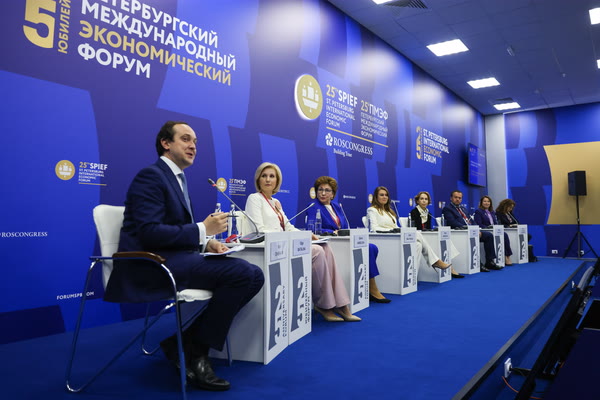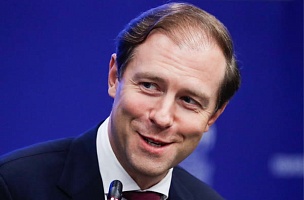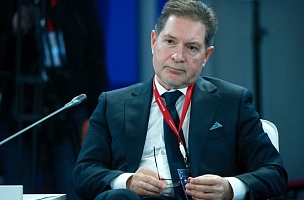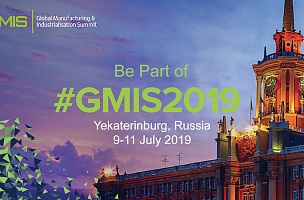Key conclusions
Involving the public in projects discussions
“The Federative Council is holding discussions, public councils are being formed. These are always large-scale initiatives, they involve a lot of people,” Galina Karelova, Deputy Chairman of the Federation Council of the Federal Assembly of the Russian Federation.
“People do not want to simply give feedback after-the-fact, they want to take part in decision-making. We tried this socio-cultural cooperation model in a number of cities where VEB.RF launched financial or urban development projects, like a transportation system update. We organize townhall meetings and try to fill this project with additional meaning,” Natalya Timakova, Deputy Chairman, State Development Corporation VEB.RF.
“Supporting active residents could act as development impetus even for the most depressive territories, once the potential for this territory is defined and unified,” Maria Morozova, General Director, Elena and Gennady Timchenko Charitable Foundation.
Social sphere is now completely human-centric
“Starting in 2020 when the state started to increase its financial support for various social groups, the human-centredness of the social protection system became a number one priority. What was the foundation that allowed us to launch this overall transformation of our social system to make it more person-oriented? First of all, it was massive amounts of data on residents that has been collected by various state organizations in various systems,” Olga Batalina, First Deputy Minister of Labor and Social Protection of the Russian Federation.
“It is not only about people getting a doctor’s appointment or calling a public notary for a home visit, even though there is plenty of new accessible technology. It is more but indeed machines, mechanisms, and technologies are going ahead full speed,” Natalya Timakova, Deputy Chairman, State Development Corporation VEB.RF.
PROBLEMS
Lack of protection for families with children
“There is a problem of reaching the families with kids. We have been saying for years that poverty has migrated. We need to act fast. We need to account for families with multiple children, incomplete families, families with two children. Everything calls for us to build our social policy taking multiple interests into account: not just large groups, but each group separately. It will ultimately make us customer-oriented,” Galina Karelova, Deputy Chairman of the Federation Council of the Federal Assembly of the Russian Federation.
“We still have not completed the task the President gave us to create a wholesome support system for families with kids. It is still to be completed with regard to certain age groups. Families with children alone are getting RUB 1.7 trillion right now,” Olga Batalina, First Deputy Minister of Labor and Social Protection of the Russian Federation.
Challenges receiving targeted help
“Targeted help, feedback, account of people’s interests. I believe this is impossible to achieve without non-profit organizations. The state simply cannot reach every person. Unfortunately, there still are lonely people out there that cannot support themselves and the state simply does not know they need help,” Elena Topoleva-Soldunova, Chairman, Commission for the Development of the Non-Profit Sector and Support of Socially Oriented NPOs, Public Chamber of the Russian Federation; Director, Agency of Social Information.
“When we started our foray into partnership between media, business, state, and public we did see a great number of state programmes and non-profit organizations that provided assistance to the people. We saw an enormous gap between the pubic and these great programmes because many people were simply unaware of their existence – either the programmes or the organizations,” Maria Zalunina, Head of CSR, National Media Group.
SOLUTIONS
Support non-profits
“If we want to support non-profits, if we want this sector to develop, then we have a lot of work ahead of us. Why? Because a lot of foreign companies that left were huge charity donors, they upheld targeted programmes, and they helped shape the whole culture of non-profit organizations here. It is extremely important that the state and business figure out their priorities, so that the really important projects could go on,” Natalya Timakova, Deputy Chairman, State Development Corporation VEB.RF.
“Business can help. There are numerous examples of projects carried by companies, private foundations, and non-profits. <…> You need to put in the work and not expect that the results grow on their own. Then I am confident that the result is going to come. Because some things can change really fast – and not just for the non-profits themselves but for those, in whose favour those profits are working,” Elena Topoleva-Soldunova, Chairman, Commission for the Development of the Non-Profit Sector and Support of Socially Oriented NPOs, Public Chamber of the Russian Federation; Director, Agency of Social Information.
For more information, visit the Roscongress Foundation’s Information and Analytical System at roscongress.org.






